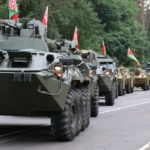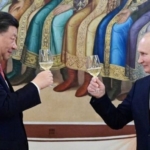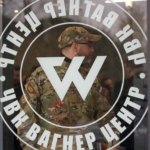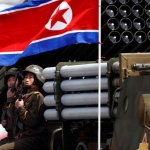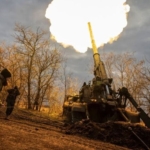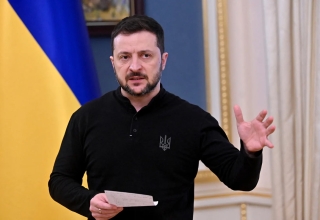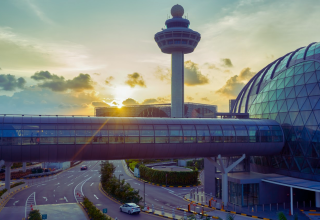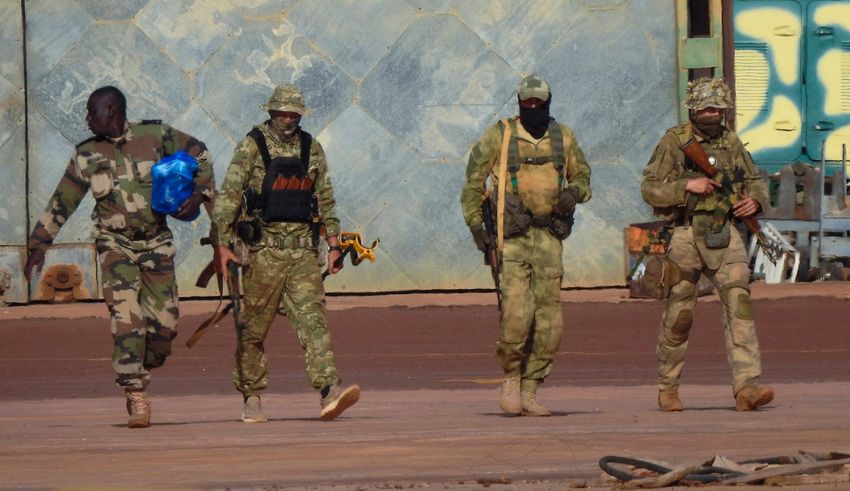
Wagner Group, a private military contractor linked to the Kremlin, has been accused of committing grave human rights abuses and violations of international humanitarian law in several African countries, where it operates alongside government forces or rebel groups.
The mercenaries, who are allegedly paid and trained by Russia, have been involved in killings, torture, rape, and displacement of civilians, as well as attacks on peacekeepers and humanitarian workers. The mercenaries’ actions have violated and undermined the rights and freedoms of the African people, and have threatened the peace and security of the region and the world.
Where and why does Wagner Group operate in Africa?
Wagner Group operates in at least 10 African countries, including the Central African Republic (CAR), Libya, Sudan, Mozambique, and Mali. The group’s presence and activities in Africa are part of Russia’s strategy to expand its influence and interests in the continent, and to challenge the role and presence of the US and its allies. Russia uses Wagner Group as a proxy and a tool to achieve its political and economic objectives, such as securing access to natural resources, gaining military and strategic advantages, and supporting its allies or proxies.
Wagner Group offers its services to African governments or factions that are facing internal or external conflicts, such as civil wars, insurgencies, or terrorism. The group provides military training, advice, and support, as well as weapons and equipment, to its clients, in exchange for lucrative contracts, concessions, or access to strategic locations. The group also engages in combat operations, often in coordination or cooperation with other foreign actors, such as Turkey, the United Arab Emirates, or France.
How does Wagner Group violate and undermine the rights and freedoms of the African people?
Wagner Group has been implicated in numerous cases of human rights abuses and violations of international humanitarian law in Africa, which have affected the lives and livelihoods of millions of African people. Some of the documented or alleged violations include:
- In the CAR, Wagner operatives, as well as government forces, have raped and robbed unarmed civilians in the country’s rural areas, the UN and France say. In a report in August 2023 about human rights abuses in the CAR, the UN documented more than 500 incidents in the year from July 2020. Among those were extrajudicial killings, torture and sexual violence. The mercenaries have also attacked and killed UN peacekeepers and humanitarian workers, and have obstructed the delivery of aid and the protection of civilians.
- In Libya, Wagner operatives, as well as Russian-backed forces loyal to the warlord Khalifa Haftar, have been accused of planting landmines and booby traps in and around the capital, Tripoli, which have killed and injured hundreds of civilians, including children. The US military previously accused Wagner mercenaries of planting landmines in and around the Libyan capital, Tripoli. The mercenaries have also been involved in indiscriminate attacks on civilian areas, and have targeted health facilities and workers.
- In Sudan, Wagner operatives, as well as Sudanese security forces, have been accused of cracking down on peaceful protesters and activists, who have been demanding democratic reforms and justice for the victims of the 2019 military coup. The mercenaries have also been accused of training and arming the Rapid Support Forces, a notorious paramilitary group that has been responsible for atrocities and crimes against humanity in Darfur and other regions.
- In Mozambique, Wagner operatives, as well as Mozambican government forces, have been accused of committing human rights violations and abuses in their fight against Islamist militants, who have been terrorizing the northern province of Cabo Delgado since 2017. The mercenaries have also been accused of failing to protect and assist the civilians, who have been displaced and traumatized by the violence.
- In Mali, Wagner operatives, as well as the transitional military government, have been accused of violating the 2015 peace agreement and the 2020 coup agreement, which were aimed at restoring democracy and stability in the country. The mercenaries have also been accused of undermining the efforts and interests of the international community and the regional actors, such as the UN, the African Union, and the Economic Community of West African States, who have been supporting the peace and transition processes in Mali.
Keep Reading
What are the implications and challenges of Wagner Group’s presence and actions in Africa?
Wagner Group’s presence and actions in Africa have implications and challenges for the continent and the world, such as:
Wagner Group’s presence and actions in Africa have contributed to the escalation and prolongation of the conflicts and crises in the continent, and have increased the suffering and insecurity of the African people.
Wagner Group’s presence and actions in Africa have also challenged and threatened the sovereignty and integrity of the African states, and have interfered and conflicted with the interests and objectives of the African regional and sub-regional organizations. Wagner Group’s presence and actions in Africa have also destabilized and endangered the regional and global peace and security, and have violated and undermined the international law and norms, such as the UN Charter, the Geneva Conventions, and the Universal Declaration of Human Rights.
Wagner Group’s presence and actions in Africa pose challenges and difficulties for the international community and the relevant actors, such as the UN, the African Union, the European Union, and the US, who have been trying to address and resolve the conflicts and crises in the continent, and to protect and promote the rights and freedoms of the African people.
The challenges and difficulties include: the lack of transparency and accountability of Wagner Group and its clients, the difficulty of verifying and investigating the allegations and evidence of human rights violations, the complexity and diversity of the legal and diplomatic frameworks and mechanisms, the resistance and opposition of Wagner Group and its clients to any sanctions or measures, and the risk and cost of any military or humanitarian intervention.
